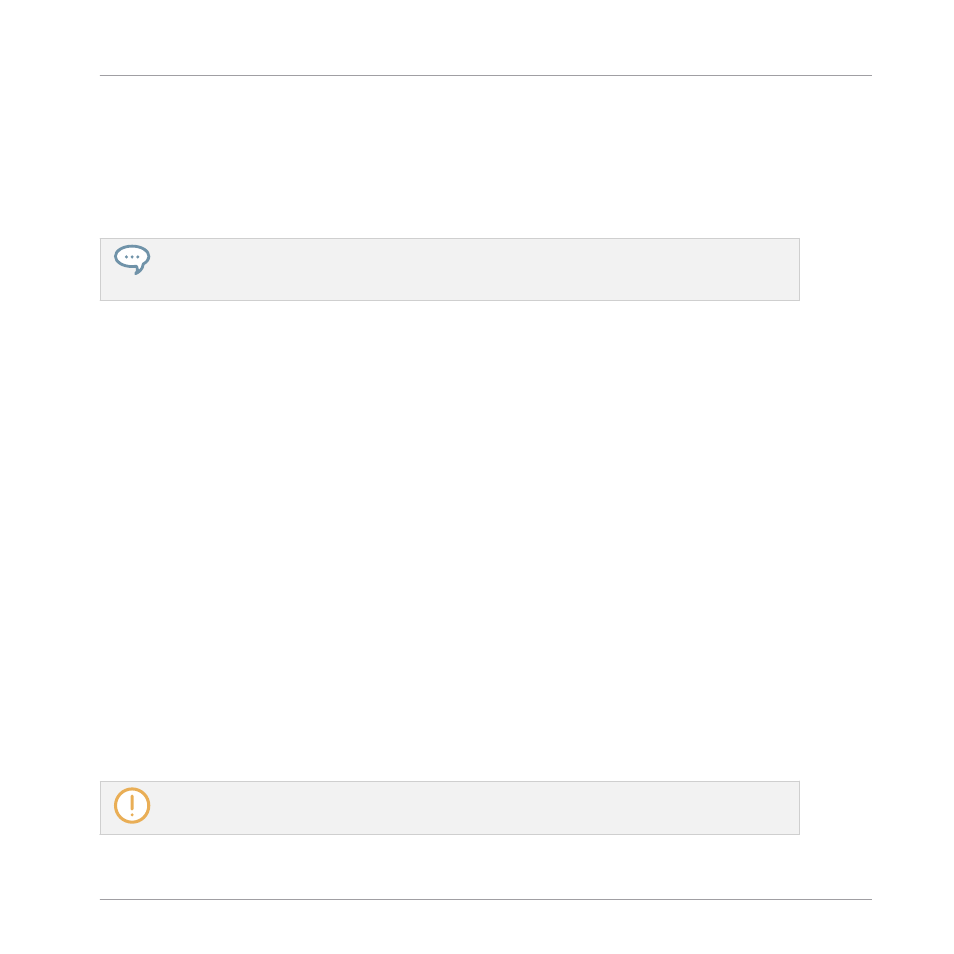Audio and midi handling – Native Instruments MASCHINE MIKRO MK3 Groove Production Studio (Black) User Manual
Page 87

start the playback in MASCHINE, nor modify the tempo or the time signature of your Project
within the MASCHINE plug-in itself — these are synchonized to your host’s own transport
functions and tempo settings. As a direct consequence, when MASCHINE is used as a plug-in
the Restart and Play buttons as well as the Tempo and Time Signature fields are grayed out
and inactive in the MASCHINE Header. Obviously you cannot control MASCHINE’s playback
and tempo settings from your MASCHINE controller either.
However from your controller you can directly control the transport functions of your host applica-
tion instead. See section Controlling your Host’s Transport Functions in Plug-in Mode for more in-
formation.
Audio and MIDI Handling
When MASCHINE is used in stand-alone mode, it directly communicates with your audio and
MIDI interface. You can select which physical audio/MIDI ports have to be used on your inter-
face, and configure crucial audio settings like the sample rate. All this is done via the
Audio
and MIDI Settings
panel (for more information on this, please refer to
).
On the contrary, When MASCHINE is used as a plug-in within a host application, the commu-
nication with your audio and MIDI interfaces is managed by the host — the MASCHINE plug-
in only communicates with the host. Native Instruments’ Online Knowledge Base provides
how-tos that will help you route the MASCHINE plug-in to multiple tracks/outputs in the major
hosts:
▪
How to route MASCHINE to multiple outputs in Ableton Live:
▪
How to route MASCHINE to multiple outputs in Cubase:
▪
How to route MASCHINE to multiple outputs in Pro Tools:
▪
How to route MASCHINE to multiple outputs in Logic Pro:
For all details on the audio and MIDI configuration of your host application, please refer to its docu-
mentation.
Basic Concepts
Stand-Alone and Plug-in Mode
MASCHINE MIKRO - Manual - 87
